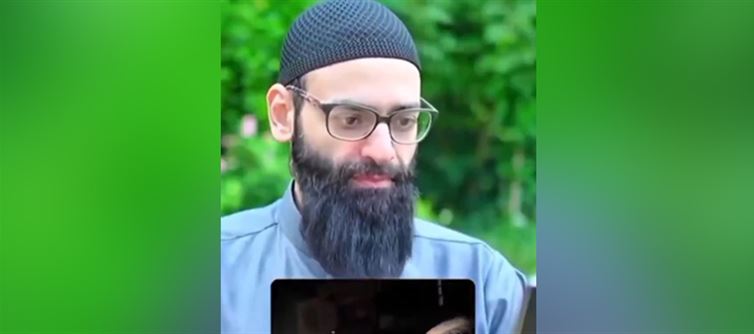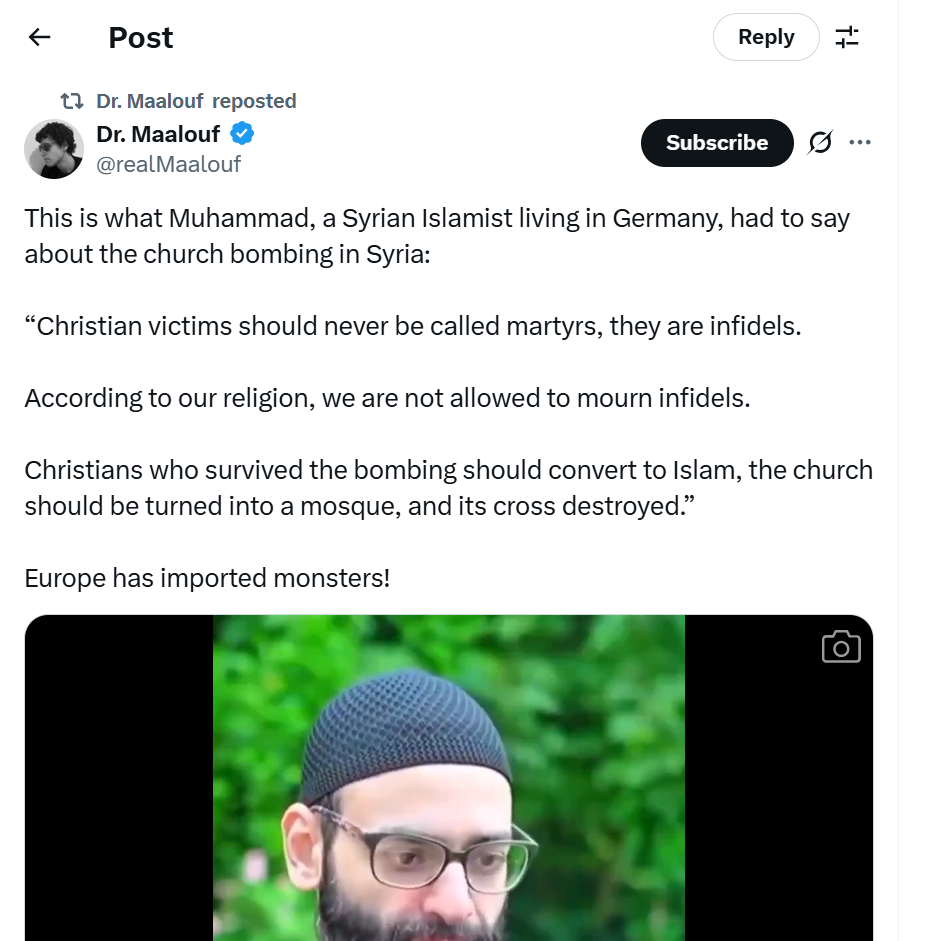
Muhammad’s statement further asserted that it is forbidden, according to his interpretation of religion, to mourn non-Muslims. This rigid and exclusionary view contradicts the spirit of compassion and shared humanity that many religious traditions, including Islam, uphold. Mainstream Islamic scholars and communities around the world have frequently denounced such narrow interpretations, emphasizing that mourning victims of violence, regardless of their faith, is a moral and human obligation. His call for Christians to convert, coupled with the demand to turn the bombed church into a mosque and destroy its cross, represents not only a blatant act of religious intolerance but also an alarming endorsement of cultural erasure and conquest.
 These remarks, if left unchallenged, risk fueling tensions between communities and reinforcing negative stereotypes about Muslims, especially in Europe, where debates around integration and extremism are already heated. Authorities and civil society in germany and beyond must take such rhetoric seriously, ensuring that hate speech and extremist ideologies are confronted through legal, educational, and community-driven means. At the same time, it's crucial to distinguish between the views of radical individuals and the broader, peaceful Muslim majority, who often bear the burden of defending their faith against such distortions.
These remarks, if left unchallenged, risk fueling tensions between communities and reinforcing negative stereotypes about Muslims, especially in Europe, where debates around integration and extremism are already heated. Authorities and civil society in germany and beyond must take such rhetoric seriously, ensuring that hate speech and extremist ideologies are confronted through legal, educational, and community-driven means. At the same time, it's crucial to distinguish between the views of radical individuals and the broader, peaceful Muslim majority, who often bear the burden of defending their faith against such distortions.




 click and follow Indiaherald WhatsApp channel
click and follow Indiaherald WhatsApp channel